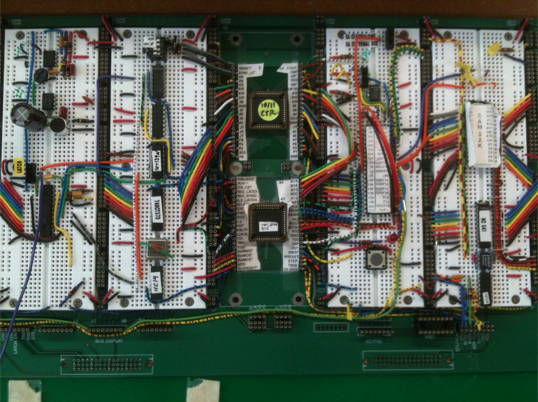Electronics
Kindling
After completing my undergraduate, I was frustrated with my inability to design electronics components to interface with the motors and sensors of my prototypes. So I used Vulcan logic: "Learn electronics, then I would be able to control machines." I was advised to register for the Harvard electronics course Physics 123, which became a door to new possibilities.
After four electronics courses, now I'm familiar with computer electronics, power electronics, and microcontrollers programming. It took three dedicated courses and several application courses to get me here. Visit the Dare NOW section for design/manufacturing electronics to start your own Vulcan logic.
Harvard Physics 123
Physics 123 with Prof. Hayes is a lab intersensive introductory course to circuit design. I started the course a week and a half late, so I was at a dissadvantage (In the words of Robert Lutz :"So What!"). Prof. Hayes let me join the class and I learned how NOT to drown. It was an amazing course and I learned more than I could imagine. The course gets you hands on experience building a "computer" from scratch and then programming it in machine language. You can make a rudimentary calculator. While I feel I could have learned a lot more, the course gave me the experience I needed to take advantage of more advance courses at MIT. This is one of the BEST courses EVER!This is my computer for the Harvard Electronics course. It took longer to color code the wires and make it traceable from a top image but it was worth it. Prof. Hayes decided that it was so pretty and since it works to use it as the new model for the class.
Hobbies Section
Related Books:
- The Art of Electronics by Paul Horowitz & Winfield Hill
- Practical Electronics for Inventors by Paul Scherz
